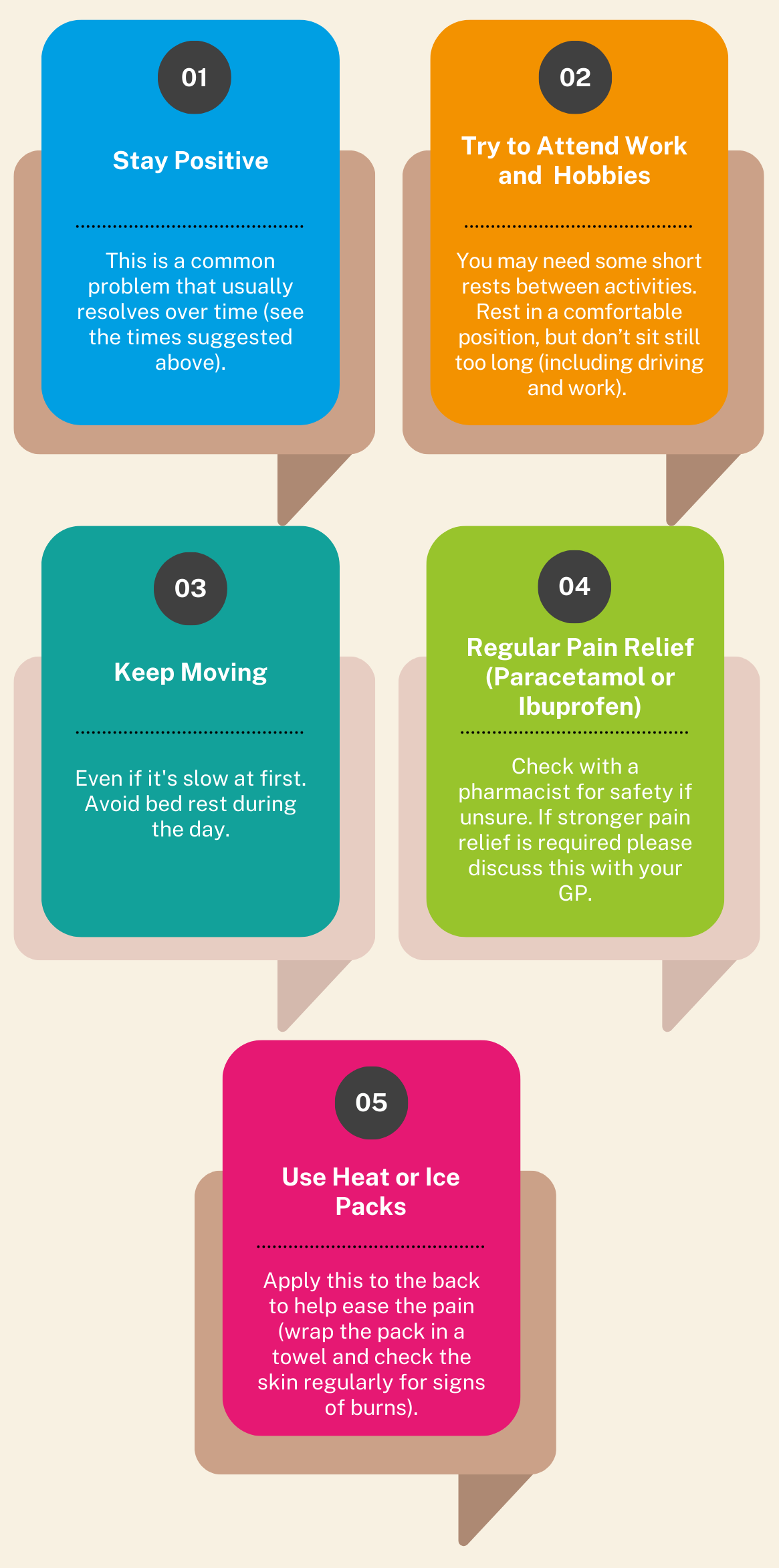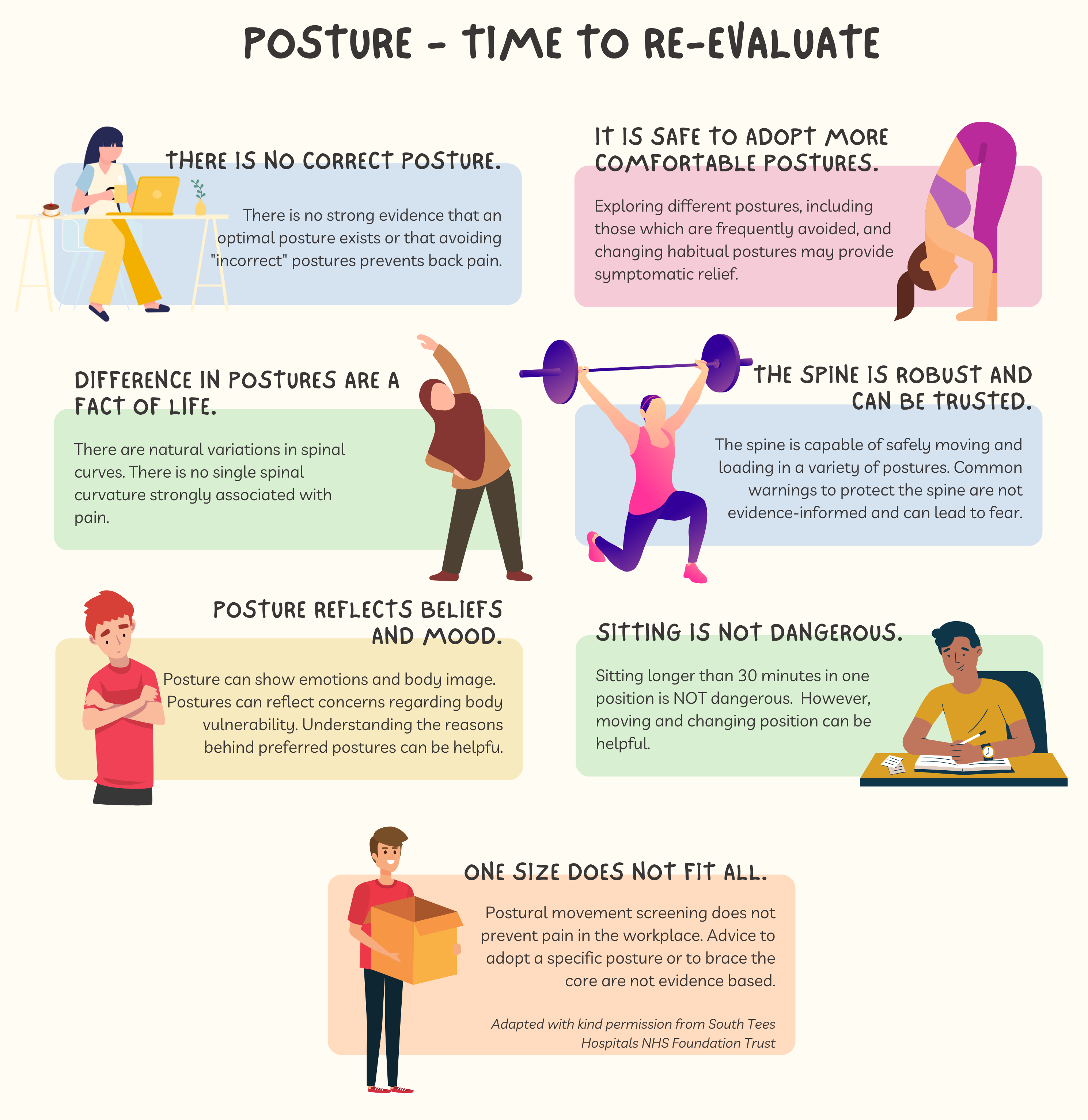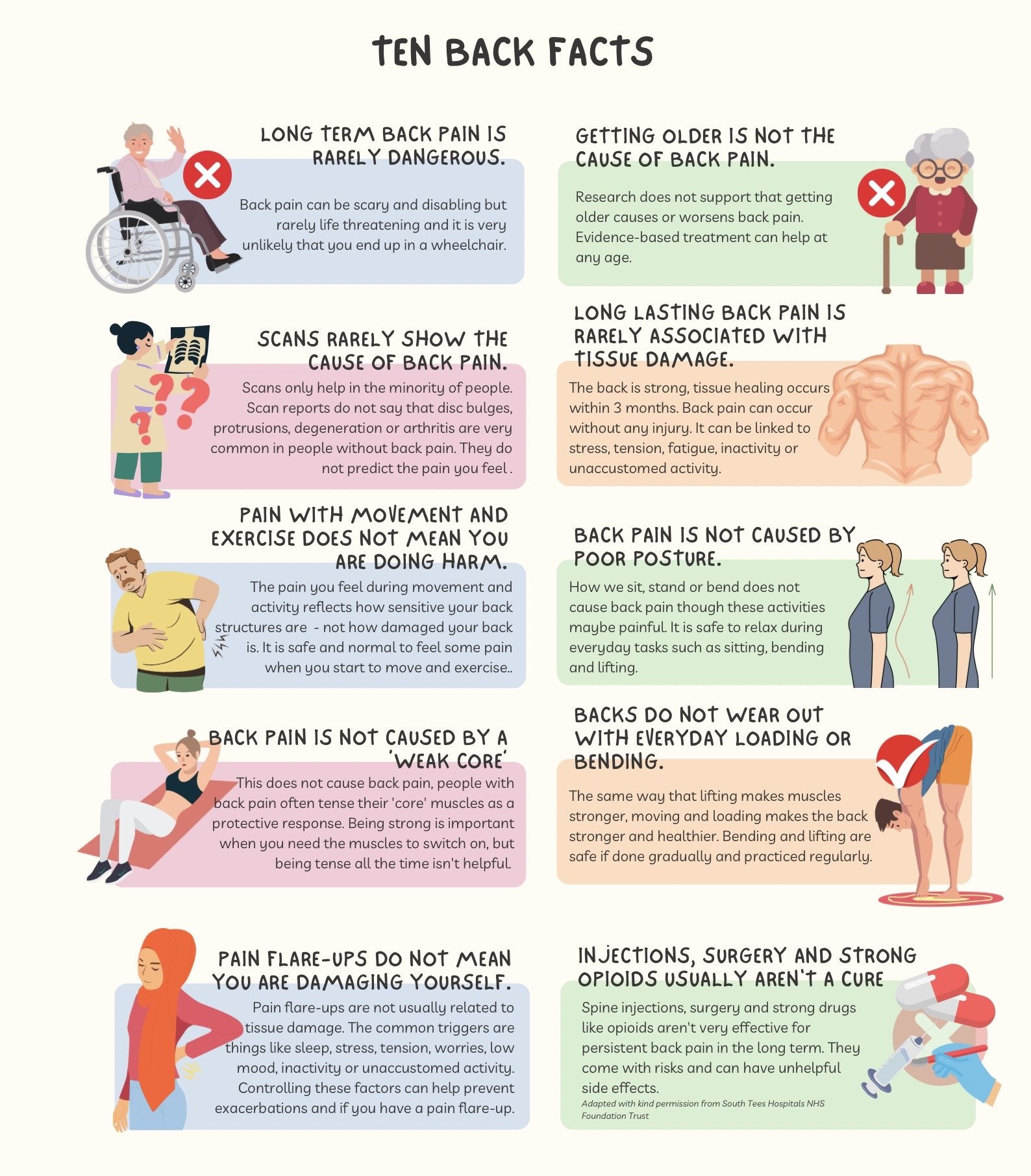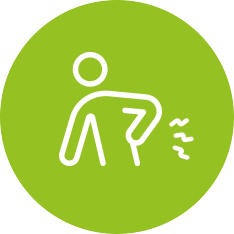Sciatica
What is sciatica?
Sciatica is a common term used to describe nerve pain down the leg.
Sciatica affects 10 - 40% of the population and usually improves on its own within 12 weeks.
What are the symptoms?
Sciatica symptoms range from mild to severe and can vary from day to day. Symptoms can be intense, but sciatica is rarely anything to worry about.
- Pain: a burning or a shooting pain starting in the lower back or buttock and radiating down the leg and sometimes into the foot
- Pins and needles: some may experience tingling sensations down the leg
- Sometimes the leg may have a feeling of heaviness
- Sciatica typically affects one leg and rarely both legs
- Symptoms may feel better or worse in certain positions, or during certain activities
What are the causes?
Sciatica is a symptom of irritation of the nerves which travel from the spine down the legs. This can be from inflammation around the nerves and in some cases from pressure. Most symptoms of sciatica will improve with time. Nerves are resilient and in most cases inflammation and any disc changes resolve, allowing nerves to recover.
Some things can increase the risk of experiencing sciatica:
- Age
- Diabetes
- Being overweight
- Smoking
- Genetics
- Vitamin B12 deficiency
- A sedentary, inactive lifestyle or general deconditioning
- Mental health issues, such as depression
- Social influences or experiences
For more information to help support your general health and well-being, please click here to access our "Healthy You" page. This includes information on exercise, mental health, smoking and weight management.
How long will it last?
Most sciatica symptoms improve within 12 weeks.
For some people the recovery may take a longer time because different people adapt and cope in different ways.
If your pain is ongoing, please visit our “persistent back pain” page.
What can I do to help myself?

What else can I do?
We have included some exercises for you to try below:
Exercises for Sciatica - MODERATE
Exercises for Sciatica - ADVANCED
Do I need an x-ray or a scan?
In most cases, no. A good history and physical examination of your sciatica alone provides enough information to diagnose your problem. Scans and x-rays are not always useful for diagnosing sciatica. While a scan or x-ray may provide information it rarely alters the treatment plan.
Imaging findings are very poorly linked with pain and often people with no pain have very similar findings on their scans/x-rays to those that do. X-rays and scans can help for a small number of people in certain situations and will be recommended by a healthcare professional if required.
Does posture contribute?

Back Pain Facts

Symptoms to check
Click the plus sign to see a list of problems that could be a sign you may need to be checked urgently
When to get immediate medical advice
You should contact a GP or NHS 111 immediately if you have back pain and:
- numbness or tingling around your genitals or buttocks/inner thighs
- loss of bladder or bowel control or difficulty urinating, leaking of urine or bowel movements.
- Changes in sexual function, including loss of sensation during intercourse, inability to achieve an erection or ejaculate
- sudden, significant weakness in your arms or legs
- lack of coordination or heaviness to your arms and legs that is affecting your walking
- severe arm pain with accompanying tingling or numbness
- chest pain
- a high temperature (fever) of 38C (100.4F) or above
- a swelling or a deformity in your back
- it does not improve with or at rest or is worse at night
- it started after a serious accident, such as after a car accident
These problems could be a sign of something more serious and need to be checked urgently.
Click here to find out more about the warning signs of cauda equina
Immediate medical advice is available by contacting NHS 111


 Back
Back